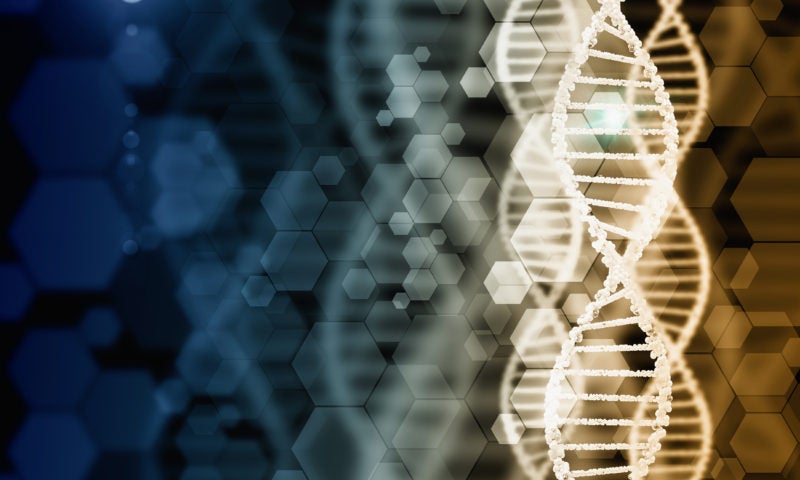
A study has found that artificial intelligence (AI) is well-placed to be used in synthetic biology to automatically design new DNA sequences with specific desirable qualities.
Synthetic biology brings together disciplines including biology, chemistry, computer science and engineering with the aim of redesigning and creating biological components that do not yet exist in the natural world.

Discover B2B Marketing That Performs
Combine business intelligence and editorial excellence to reach engaged professionals across 36 leading media platforms.
The findings, published in leading genomics journal Nature Genetics, suggests that AI could be used to predict changes in DNA sequences crucial in medical diagnosis, vaccine development and medical diagnostics.
Analysing genomes are typically done in the lab at a comparatively smaller scale.
By using deep learning techniques, AI is able to spot patterns in large volumes of data that humans would find near on impossible to process.
This makes AI-driven predictions a much cheaper and quicker alternative for genomic research.

US Tariffs are shifting - will you react or anticipate?
Don’t let policy changes catch you off guard. Stay proactive with real-time data and expert analysis.
By GlobalDataSynthetic biology to synthesize novel compounds
Co-author Mikael Huss, data scientist at AI-firm Peltarion and professor at the Karolinska Institutet in Sweden, said, “In genomics, researchers need to understand the effects of changing a piece of DNA, especially when multiple changes are done.
“Traditionally this is done with lab experiments, but evaluating all possible changes is both costly and time-consuming.”
“As work reviewed in this paper shows, deep learning based AI methods could in many cases be used to predict effects of changing DNA much faster and at much lower cost.
“For instance, if you want to create a new antimicrobial drug, you can use AI techniques to synthesize a novel compound with specifically desired properties.
“This is potentially game-changing.”
In addition to Huss, the paper was co-authored by James Zou of the Stanford University School of Medicine and the Chan-Zuckerberg Biohub, Abubakar Abid of the Stanford School of Medicine and Ali Torkamani, Pejman Mohammadi and Amalio Telenti, from the Scripps Research Institute.
Read more: AI is exploding into healthcare — here’s how it’s being used




